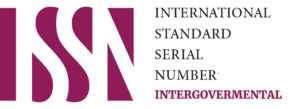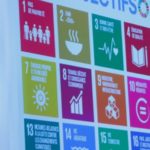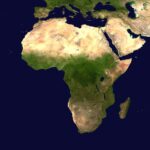1. Background
The late 1980s and early 1990s are described as a period of adjusting for the developing world, due to the widespread economic reforms. The advent of these reforms followed economic, political, and social problems, including, but not limited to, the inability to honor international financial obligations, adverse balance of payments, low productivity, and overall deteriorating living standards. In the words of Joseph Stiglitz, “crises in developing countries have occurred with alarming regularity; by one count are 124 between 1970 to 2007.”[i] Therefore, through what was later to be (un)popularly known as the Washington Consensus, structural adjustment programs (SAPs) were introduced. Through programs such as privatization, SAPs were intended to liberalize economies, promote exports, devalue currencies as well as reduce government expenditure. From the theoretical viewpoint, these programs, to say the least, looked perfect for problems that were becoming a longtime phenomenon in the developing world. Following the advent of these programs, developing countries have carried out reforms in various sectors. As noted earlier, throughout these reforms, the economic sphere has been the target, though, to some extent, political and social changes have also occurred. Altogether, these programs are under the supervision of the World Bank (WB) and the International Monetary Fund (IMF). However, political and social adjustments, such as democracy, came in along the way.
On the African content, adjustment programs seemed to work as planned, at least at the beginning of the programs, with numerous countries, such as Uganda, Ghana, Kenya, and Zambia, all have reported positive growth. This positivity prompted writers such as H. Veltmeyer, J. Petras, and S. Vieux to declare “a rapid increase in international capital flows, up from $40 billion in 1986 to $160 billion in 1993 and a massive increase of investments in the emerging markets developing countries.”[ii] Additionally, to Alfred G. Nhema, the “tempo of privatization heightened in Sub-Saharan Africa in the 1990s with the total number of transactions rising from 200 in 1990 to 486 in 2002.” [iii] All these were a manifestation of the pragmatic move in the right direction as projected by the World Bank and IMF, at least for the time being.
However, despite the positive reports, things started going against the intended goals. Unemployment was rising, the balance of payments of various countries worsened, export promotion strategies failed, and poverty levels soared. Adjustment programs started appearing only as development rhetoric, unable to revive the struggling economies in Africa. Moreover, more evidence emerged indicating that the economic situation in Africa that had been recorded, as shown earlier, was either exaggerated, misinformed, and unfortunate. For instance, in one of the studies about SAPs in Africa, Célestin Monga and Justin Yifu Lin observed that “since the era of structural adjustment, employment opportunities in the public sector have dwindled, and the formal private sector has failed to grow.”[iv] Moreover, due to the degenerating conditions in the region, as Stephen C. Smith reported, “about 1.25 billion people subsist on less than $1 per day, and 2.8 billion, nearly half the world’s population, live on less than $2 per day.”[v]
In a nutshell, those mentioned above conceal the argument of the failing programs even to address the very reasons of fighting poverty, providing social services, and overall uplifting of life of the communities in on the continent. By far, such reports damaged all the beauty attached to the adjustment programs, hence, triggering discussions in various academic disciplines, particularly in the sphere of international relations (IR). Whereas international organizations such as the World Bank and IMF attract interdisciplinary studies, in IR, they are mainly of interest as S.C. Nelson recognize that “international organizations suffuse world politics, and the International Monetary Fund (IMF) stands out as an unusually important IO, thus as the proportion of neoliberals in the borrowing government increases, IMF deals get comparatively sweeter.”[vi]
Therefore, following the failure of adjusting and other problems that ensued, it is time to navigate other avenues. On the other hand, the inconsistencies and inadequacies inherent in the local concepts, models, and theories, a new development belief (Afriwestism), would be an ideal substitute. The idea of “Afriwestism” strives to strike a balance between the two schools of thought, that is, SAPs, which are western in nature and local concepts, as will be seen later. On the one hand, western concepts/models and theories are laden with neo-colonialist tendencies such as capitalism, globalization, and imperialism. In contrast, the local development paradigms are somewhat communal and conservative.
Nonetheless, the fact that SAPs appear flawed, to a large extent causing untold, sometimes unintended consequences than it came to solve, thus raises the need to revisit these programs. In this case, “Afriwestism” is situated to act as a suitable and timely remedy for sustainable development. For adjustment programs or any other development programs, to be effective in Africa, “Afriwestism” conjures harmony between the global programs like SAPs and the community programs. Along the same lines, by conceptualizing “Afriwestism,” it does not mean doing away with the western models of development altogether, but merely a hybrid of local and international thinking. The reasons behind this premise are that most of the African models lack not only the financial muscle, nor the technical and contextual reference on which to build, but also cannot stand on their own, thus a need for western models, principally, for purposes of references.
2. The Rationale for “Afriwestism”
“Afriwestism” bolsters awareness, belonging, and localization of programs as and when they are rolled out into the community. In essence, the societies, who are the primary beneficiaries of the development programs, tend to guard against anything that distorts such projects.
Often, concepts, models, and theories for poverty alleviation based on absolute external consensus and collaboration, in this case, Europe and Washington, according to research, have not appropriately sunk in African countries. The inappropriateness of these programs, based on foreign thinking, are seen as alien, and this becomes the basis for communal resistance, which in turn contributes to their failure. That is why a recent study carried out in Uganda about the performance of privatization has shown a lack of community support for privatization. In all cases, the authorities end up using force to implement such projects. But the approach of forceful implementation has no sustainability, for the society will harbor the negative attitude as long as it lasts. In the end, some investments, especially those owned by foreigners, have been attacked, prompting the government to use heavily armed personnel to guard such facilities! Besides, this is simply because the communities feel foreigners own most of the privatized entities, and that the economy is run on foreign ownership, making the local communities wholly excluded from the whole process of privatization in particular and adjustment programs in general. Therefore, any failure of these programs, in the communities’ views, is not their making as they are not part of the programs.
Usually, the concept of exclusivity has bred a sense of negative attitude on the part of the societies, as it creates social classes, in most cases, along economic lines. Therefore, once these programs are unable to sink or be adopted by the local communities, social classes emerge, mainly assisted by the political influence, which influences the allocation of resources. In such circumstances, the western models such as SAPs cannot guarantee equitable outcomes, especially where there are imbalances of status and influence, as it appears in contemporary Africa. In the end, as Margaret Mc Millan, Dani Rodrik, and Claudia Sepulveda have admitted, “despite significant improvements in policy regimes in Africa, macroeconomic stabilization, external opening, democratization, and liberalization, the rate and direction of structural transformation have been disappointing in this region.”[vii] In other words, whatever improvements are achieved by the programs, some gaps have to be filled, hence the call for “Afriwestism.”
Realizing a seemingly sustained failure, therefore, “Afriwestism” is a timely remedy. Time and again, this concept aims at joining the development thinking that originates from the western models such as the SAPs and the African development paradigms like the Harambee from East African countries like Kenya, or Ubuntu from Southern African countries like South Africa. In essence, the rise of “Afriwestism” is a result of either of the two above schools of thought unable to address poverty in the African context. On the one hand, whereas the structural adjustment programs are multi-billion dollar development programs from the international organizations, they appear to frail, at least according to the empirical research in Africa. Indeed, it is only on this continent where according to research that poverty is on the rise, economies are failing, public debt is increasing, living standards are deteriorating, and the overall social services are worsening. The aforementioned prompted Gaëtane Jean-Marie, Steve Sider, and Charlene Desir to subscribe to the fact that “SAPs had failed the poor, with a special blunder falling on women and children.”[viii] There is also an argument that such deteriorating conditions are a source of the ever unending conflicts on the continent. Therefore, SAPs have not improved African economies; instead these programs have brought more economic misery. Kwabena Donkor warns that “it is not sufficient to ask whether or not wealth has been created as a result of these programs.”[ix]
However, the consequential failure of SAPs does not make the indigenous models any better. On the one hand, indigenous concepts such as Ubuntu or Harambee appear too subsistence to meet modern development demands, and they are conservative in adapting to modernity. For instance, most of these concepts believe in communal ownership of resources, thus contrary to most authorities that adopted capitalist economies already. Secondly, even when applied, the consistent lack of adequate resources to implement and also stand on their own makes indigenous concepts and models vulnerable and almost obsolete. S. Adams and E.K.M. Klobodu confess that, “for many Sub Saharan African (SSA) countries, domestic resources are often inadequate to fund development projects.”[x] From Klobodu’s words, it more likely that in the end, African authorities find themselves inclined to solicit external assistance, which usually comes with strings attached.
All told, the above text leaves the region in all but a weak and endangered state or a state of development dilemma. Research predicts that this state of affairs is bound to worsen if not already present. E.C. Akani caution that the “continent is still facing a disastrous future; thus, the rising expectations and independence promise have fizzled out, leaving a trail of hopelessness, frustration, fratricidal wars, extreme poverty, and preventable diseases.”[xi] Thus, a well bargained and agreed on policy between the local and foreign parties, in this case, “Afriwestism,” should be the ideal move.
On the whole, the consistent debacle of the western approaches seems to have woken up African economies to face development realities! At various stages, authorities on the continent have come up with initiatives to address these problems on the continent. A case in point is the Agenda 2063. In this grand program, Africa’s AGENDA 2063 aims at developing Africa and putting the continent squarely on the same footing as other continents in terms of trade, industrialization, and healthcare. In other words, it is a blueprint and comprehensive plan to align Africa’s development goals into the global future development objectives. Given favorable circumstances, Agenda 2063 also embraces inclusive and sustainable growth, as well as a steady and concrete manifestation of pan-Africanism, unity, self-determination, and democracy in all countries. The question of commitment of individual governments to these goals and the measure of how far this Agenda has gone since its inception is outside this discussion. However, according to the African Union (AU), the Agenda is seen as an “endogenous, shared strategic framework for inclusive growth and sustainable development that builds upon Africa’s recent positive performance in the economic, social, and political fields.”[xii]
Scrutiny of the texts of the Agenda 2063 reflects that the AU sums up the continent’s problems, with the probable solutions plus the roadmap of how to solve these development bottlenecks that have become perpetual. However, this Agenda lacks some vital resources such as financial independence to run on its own without external interference. That put aside, in the contemporary world, driven by globalization and geopolitical tendencies, it is unheard of that Africa can be left alone in any development effort. As M. Addaney has echoed, “the future of Africa is too important to be left to the African Union and national governments alone.”[xiii] Secondly, the world has become interconnected and interweaved in complex relationships that one aspect of any nature on one continent affects directly or indirectly the political, economic and social affairs on another continent. Therefore, any such programs or projects on the African continent will always find ready support in financial terms or otherwise from another continent. Moreover, other non-state actors, such as IOs are also still prepared to give a helping hand. But as said earlier in the text, such assistance always comes with negotiations of give-and-take terms for both parties to accept. Grant-Makokera acknowledges, for example, that “the G-20 considers issues directly linked to Africa’s agenda, as set out by the AU in Agenda 2063, including regional economic integration, domestic resource mobilization, and infrastructure financing.”[xiv] At the end of the day, the local or indigenous development paradigms need external assistance in one way or the other, and the best way to handle these interests is in the form of “Afriwestism.”
For that reason, it is prudent that any policymaker from the African continent aims at “Afriwestism,” as this brings the interests of both parties into an agreement of both the local and foreign beliefs, especially in programs such as SAPs, which affect peoples’ lives directly. Moreover, this concept addresses the awareness of the inherent curiosity and regard for all the parties. Also, this approach will enhance and enable the understanding of the concerns, challenges, and views of the different societies and start thinking towards the lines of inclusivity and recognition. In this direction, a sense of belonging, ownership, and self-realization, as stipulated in the UN declaration, is duly adhered to. According to the UN Declaration, as specified in the International Covenant on Economic, Social and Cultural Rights (ICESCR), under Artıcle 1, “all peoples have the right of self-determination. By that right, they freely determine their political status and freely pursue their economic, social, and cultural development.”[xv]
3. Discrete Characteristics of “Afriwestism”
“Afriwestism” is quite different from the previous approaches in that it tends to fit directly in with both the local and foreign/western viewpoints towards poverty. In that spirit, while designing policies for poverty alleviation and other problems that affect African humanity, “Afriwestism” corroborate the interests of both parties, naturally. This thinking is discrete from either the western concepts/models, such as SAPs. Western paradigms, despite being designed for poverty alleviation in the developing world, are centrally western in context. On the other hand, the indigenous models, as seen earlier, have maintained their traditional belief, repeatedly resisting change, thus unable to cope with modern human demands such as increasing demand for food, which is usually associated with population explosions. These models are seen in the production of foodstuffs, and land tenure systems, which are all unsustainable. Flora Yvonne De Quelyoe, Sarlota Rating, and Christine Marina Wakarmamu accede to the fact that “sustainable development can take place if the entire community (men and women) being optimally involved in the whole development program using efficient and practical principles.”[xvi] However, if “Afriwestism” is adopted, there is a sure way the critical and actual problems of the communities are addressed.
Ironically, “Afriwestism” differs from the previous schools of thought in that it intends to combine not only the western and indigenous norms and thinking but also soothes the tension that has existed before, especially when the two clash. The above strains always develop when there is a disagreement or failure of projects, notably, as local authorities and international organizations accuse each. For instance, as Adebimpe O. Okhiria and James A. Obadeyi recollect, “the blame on poverty is placed on modes of designing and implementing developmental programs, which are seen to have failed to take the basic needs of the poor into account and historical factors together with the existing social structures that have developed from them.”[xvii] With, “Afriwestism” such accusations and counteraccusations are resolved.
Secondly, identifying and strengthening indigenous values appears, in most cases, not only to bolster but also to help with the success of the aboriginal model. Moreover, in most cases, such a move enhances community coherence, thus reducing societal tensions and conflicts. However, the point is that indigenous values and knowledge should provide the basic and valuable platform on which “Afriwestism” is constructed. Time and again, the reason for this is that the cultural diversity and enrichment on the African continent should situate properly in a global environment, especially as far as international relations, political economy, and development issues are concerned. Therefore, concerted policies that are developed towards African development programs be it economic, political, or social should embody such African values and norms that can quickly percolate in the African dynamic lives. C. Young argues, “policy outcomes will be the product of political bargaining within civil society and its communal segments, and not simply the calculus of the state managers.”[xviii]
By and large, this new model will utilize local input, culture, morals, and local ideals into the adjustment programs, or any other future policies aimed at acquiring a resolve towards solving Africa’s problems. Therefore, “Afriwestism” should become a template for future discussions in line with the necessity or relevance of any program for the continent.
Besides, since the western models and concepts are embedded with democratic values, these are essential and critical elements that should be adopted as well. In recent times, the issue of democracy and its role in development has been at the forefront of debate by policymakers, academia, and international observers on the African continent. In particular, IOs have been compelled to include democracy and its values, as part and parcel of any policy design towards Africa. Repeatedly, this arises in the circles of IOs due to the belief that most governments in Africa are wary of democracy because of the unique or harmful elements that come with it. Therefore, there is always a security concern attached to such developments by African governments. A. Ware agrees that in the African context, “where the democratic way leads to compromises that seem politically rational, the results, for instance, decisions on resource allocations, can sometimes look economically irrational and unnecessarily burdensome to the exchequer.” [xix]
Furthermore, unlike the existing concepts, “Afriwestism” concludes as a humble but strong bond between the local authorities and the international development partners, whose relationship is based on harmony and mutual understanding. In retrospect, these communities, being the primary beneficiaries of the development programs, will, therefore, guard against any failure and destructors, because; 1) the people’s values and beliefs have been addressed; 2) the community is aware of these programs beforehand; 3) there is constant communication in all directions between all stakeholders. M. Marzano, N. Dandy, H.R. Bayliss, E. Porth, and C Potter admit that “a lack of awareness of the issues amongst key stakeholders involved in the movement of these materials can hamper an effective response as their unaltered behaviors continue to have unintended consequences.”[xx]
Failure of the above, A. Graness warns that “the lack of a genuinely international exchange of ideas, particularly concerning poverty alleviation, triggers doubts about whether or not the concepts of global justice as introduced and implemented solely by the west can transcend positively regional and cultural horizons.”[xxi] On the whole, ”Afriwestism” tends to accommodate all the stakeholders’ views, and it is the only basis to engage the local stakeholders, as I.O. Sam sums up “all around the world, local governments, the private sector, and even the civil society are exploring better ways to achieve poverty reduction and rural development, the cornerstone of sustainable national development.”[xxii] Moreover, the need for effective communication, without hiding valuable information at the community level, as well as between the parties at the policy level to address the variety of intra and inter-community needs, is pivotal at all stages. This kind of disposition should be aligned to international efforts that aim to eradicate global poverty, for it should be noted that the donor community is just assisting in solving the problem of poverty from an external position, in other words, remotely. The local communities are at the epicenter of this poverty, and “Afriwestism” takes their cardinal interests into consideration.
4. Conclusion
There is a need for the inclusion, or the resuscitation of community-based values and perspectives in a developing country to curb some of the social problems and “Afriwestism” assumes this role. Moreover, indigenous knowledge or community-based ideas are critical in bringing about a transitional change in fighting poverty. That is why the discussion above reiterated and stressed the relentless desire to revisit the current approaches towards the management and implementation of structural adjustment programs. The analysis also indicated that the prevailing concepts are not only inadequate but also raise a spectrum of problems that leave the current beneficiaries in significantly bizarre conditions and other poverty-related issues.
The overall argument of this article has been that such approaches to poverty alleviation and the long-lasting development, as conceptualized through the lens of this practicability, are not only deficient but also insufficient. Moreover, this is primarily reflected in their inability to confront and solve the complex nature of poverty in African countries, widely. Adjusting in this context requires the introduction of a new approach that departs from the inherent limitations of current strategies that are overwhelmingly neocolonialist-centric and probably western in outlook, character, and context. On the other hand, the harmonious and accommodative indigenous models that are embedded with local norms, beliefs, and characteristics of the communities are mainly financially incapacitated, subsistence in nature, and are unable to cope with modern development modalities. Therefore, this puts “Afriwestsim” in a logical and strategic position to take center stage and will accommodate both schools of thought. As mentioned before, this will not only win the legitimacy of the programs but also will instill a sense of belonging, ownership, and accommodation from the local communities. Perhaps, even the habit of pointing fingers as to who should take the blame for failure will cease as everyone will be involved.
References
[i] Joseph Stiglitz, Freefall: Free Markets and the Sinking of the Global Economy (Penguin Books Limited, 2015), 30.
[ii] Henry Veltmeyer, James Petras, and Steve Vieux, Neoliberalism and Class Conflict in Latin America: A Comparative Perspective on the Political Economy of Structural Adjustment (Springer, 2016), 1.
[iii] Alfred G. Nhema, “Privatisation of Public Enterprises in Developing Countries: An Overview,” International Journal of Humanities and Social Science 5, no. 9 (2015): 247–256.
[iv] Célestin Monga and Justin Yifu Lin, The Oxford Handbook of Africa and Economics (Oxford University Press, 2015), 141.
[v] Stephen C. Smith, Ending Global Poverty: A Guide to What Works (St. Martin’s Publishing Group, 2015), 60.
[vi] Stephen C. Nelson, “Playing Favorites: How Shared Beliefs Shape the IMF’s Lending Decisions,” International Organization 68, no. 2 (2014): 297–328.
[vii] Margaret Mc Millan, Dani Rodrik, and Claudia Sepulveda, Structural Change, Fundamentals, and Growth: A Framework and Case Studies (The World Bank, 2017), 48.
[viii] Gaëtane JeanMarie, Steve Sider, and Charlene Desir, Comparative International Perspectives on Education and Social Change in Developing Countries and Indigenous Peoples in Developed Countries (IAP, 2015), 134.
[ix] Kwabena Donkor, Structural Adjustment and Mass Poverty in Ghana (Routledge, 2019), 101.
[x] Samuel Adams and Edem Kwame Mensah Klobodu, “Capital Flows and the Distribution of Income in Sub-Saharan Africa,” Economic Analysis and Policy 55 (2017): 169–178.
[xi] Eze Chris Akani, “MAINSTREAMING THE PAN AFRICAN IDEALS IN THE AFRICAN UNION (AU) AGENDA 2063. THE AFRICA WE WANT,” n.d.
[xii] African Union, “Agenda2063 Report of the Commission on the African Union Agenda 2063 The Africa We Want in 2063,” 2015.
[xiii] Michael Addaney, “The African Union’s Agenda 2063: Education and Its Realization,” in Education Law, Strategic Policy and Sustainable Development in Africa (Springer, 2018), 181–197.
[xiv] Catherine Grant-Makokera, “G-20 Development Agenda and African Priorities: An Update,” 2016.
[xv] “‘OHCHR | International Covenant on Economic, Social and Cultural Rights,’ Accessed January 4, 2020,
[xvi] Flora Yvonne De Quelyoe, Sarlota Ratang, and Christine Marina Wakarmamu, “The Impact of Poverty Reduction Program into Papuan Women Economy Behavior in District of Kemtuk Gresi, Jayapura Regency (Case Study),” Journal of Education and Vocational Research 7, no. 2 (2016): 41–46.
[xvii] Adebimpe O. Okhiria and James A. Obadeyi, “Poverty, an African Epidemic: Empirical Evidence of Nigeria,” 2015.
[xviii] Crawford Young, Ethnic Diversity and Public Policy: A Comparative Inquiry (Springer, 2016), 8.
[xix] Allan Ware, Funding Democratization (Routledge, 2017), 48.
[xx] Mariella Marzano et al., “Part of the Solution? Stakeholder Awareness, Information and Engagement in Tree Health Issues,” Biological Invasions 17, no. 7 (2015): 1961–1977.
[xxi] Anke Graness, “Is the Debate on ‘Global Justice’a Global One? Some Considerations in View of Modern Philosophy in Africa,” Journal of Global Ethics 11, no. 1 (2015): 126–140.
[xxii] Iwala Oladapo Sam, “Achieving Sustainable Poverty Reduction and Rural Development in Nigeria through Local Economic Development Strategies,” American Journal of Rural Development 2, no. 1 (2014): 13–19.












